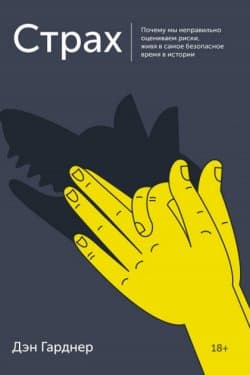Разум убийцы - Ричард Тейлор (2021)
-
Год:2021
-
Название:Разум убийцы
-
Автор:
-
Жанр:
-
Язык:Русский
-
Страниц:194
-
Рейтинг:
-
Ваша оценка:
На протяжении всей своей карьеры судебного психиатра Ричарда Тейлора интересовало: «Зачем люди убивают?». В книги он рассказывает о преступлениях, совершенных в состоянии аффекта, на сексуальной почве, финансово мотивированных, массовых и психотических, убийствах, связанных с терроризмом, детоубийствах. Это взгляд изнутри на редкую профессию, попытка понять мотивы людей, которые совершают тяжкие преступления. Каким образом приходят к выводу о дальнейшей судьбе обвиняемого? Как с преступником работает судебный психиатр? Что случается с лицами, признанными невменяемыми? Что можно предпринять, чтобы не допустить повторение трагических событий? Вы узнаете, каким образом происходит психиатрическая оценка преступника, а также о резонансных случаях, в которых автор принимал участие, как судебный психиатр.
Разум убийцы - Ричард Тейлор читать онлайн бесплатно полную версию книги
47. Gudjonsson, G. H. and MacKeith, J. A. C. (1988)’Retracted Confessions: Legal, Psychological and Psychiatric Aspects’, Medicine, Science and the Law, 28(3), pp. 187–194.
48. Taylor, R., Yakeley, J., ‘Women in prison’ book chapter in Psychiatry in Prisons: a Comprehensive Handbook (Vol. 31), Cumming, I., Wilson, S. (eds), pp. 86–97: Jessica Kingsley, London.
49. Jelicic, M., 2018. ‘Testing claims of crime-related amnesia’, Frontiers in Psychiatry, 9, p. 617.
50. Babiak, P., Hare, R.D. and McLaren, T., 2006. Snakes in Suits: When Psychopaths Go to Work, New York, NY: Regan Books.
51. Yakeley, J., 2018. ‘Current understanding of narcissism and narcissistic personality disorder’. Advances in Psychiatric Treatment, 24(5), pp. 305–315.
52. Wallang, P. and Taylor, R., 2012. ‘Psychiatric and psychological aspects of fraud offending’, Advances in Psychiatric Treatment, 18(3), pp. 183–192.
53. Yakeley, J. and Taylor, R., 2018. ‘Gambling: addicted to the game’ in Bower, M. (ed.), Addictive States of Mind, (pp. 125–150), Routledge.
54. Meloy, J.R., 2004. ‘Indirect personality assessment of the violent true believer’ Journal of personality assessment, 82(2), pp. 138–146.
55. Robbins, I., MacKeith, J., Davison, S., Kopelman, M., Meux, C., Ratnam, S., Somekh, D. and Taylor, R., 2005. ‘Psychiatric problems of detainees under the Anti-Terrorism Crime and Security Act 2001’, Psychiatric Bulletin, 29(11), pp. 407–409.
56. Clemmow, C., Gill, P., Bouhana, N., Silver, J. and Horgan, J., 2020. ‘Disaggregating lone-actor grievance-fuelled violence: Comparing lone-actor terrorists and mass murderers, Terrorism and Political Violence, pp. 1–26.
57. Merari, A., 2010. Driven to Death: Psychological and Social Aspects of Suicide Terrorism, Oxford University Press.
58. Meloy, J.R. and Gill, P., 2016. ‘The lone-actor terrorist and the TRAP-18’. Journal of Threat Assessment and Management, 3(1), p. 37.
59. Golds, L., de Kruiff, K. and MacBeth, A., 2019. ‘Disentangling genes, attachment, and environment: A systematic review of the developmental psychopathology literature on gene – environment interactions and attachment’, Development and Psychopathology, 32:1 pp. 1–25.
60. Van IJzendoorn, M.H., Palacios, J., Sonuga-Barke, E.J., Gunnar, M.R., Vorria, P., McCall, R.B., LeMare, L., Bakermans-Kranenburg, M.J., Dobrova-Krol, N.A. and Juffer, F., 2011. ‘Children in institutional care: Delayed development and resilience’, Monographs of the Society for Research in Child Development, 76(4), pp. 8–30.
61. Ogilvie, C.A., Newman, E., Todd, L. and Peck, D., 2014. ‘Attachment & violent offending: A meta-analysis’. Aggression and violent behavior, 19(4), pp. 322–339.
62. Ainsworth, M.D.S., Blehar, M.C., Waters, E. and Wall, S.N., 2015. Patterns of attachment: A psychological study of the strange situation. Psychology Press.
63. Meloy, J.R., 2003. ‘Pathologies of attachment, violence, and criminality’. Handbook of Psychology, pp. 509–526.
64. Hale, R., Dhar, R., 2008. ‘Flying a kite – observations on dual (and triple) diagnosis’. Criminal Behaviour and Mental Health, 18(3), pp. 145–152.
65. Day, C., Briskman, J., Crawford, M.J., Foote, L., Harris, L., Boadu, J., McCrone, P., McMurran, M., Michelson, D., Moran, P. and Mosse, L., 2020. ‘Randomised feasibility trial of the helping families programme-modified: an intensive parenting intervention for parents affected by severe personality difficulties’, BMJ Open, 10(2).
66. Gelsthorpe, L. (2013). ‘Criminal justice: The policy landscape’. In: A. Hucklesby and A. Wahidin, eds., Criminal Justice. Oxford: Oxford University Press., pp. 17–33.
67. Green, D.A., 2012. When children kill children: Penal populism and political culture. OUP Oxford.

 Присягнувшие Тьме
Присягнувшие Тьме  Аспект дьявола
Аспект дьявола  Красный Дракон
Красный Дракон  Страх
Страх  Разум
Разум  Внутри убийцы
Внутри убийцы  Пир теней
Пир теней  Князь во все времена
Князь во все времена  Когда порвется нить
Когда порвется нить  Пока я здесь
Пока я здесь 



